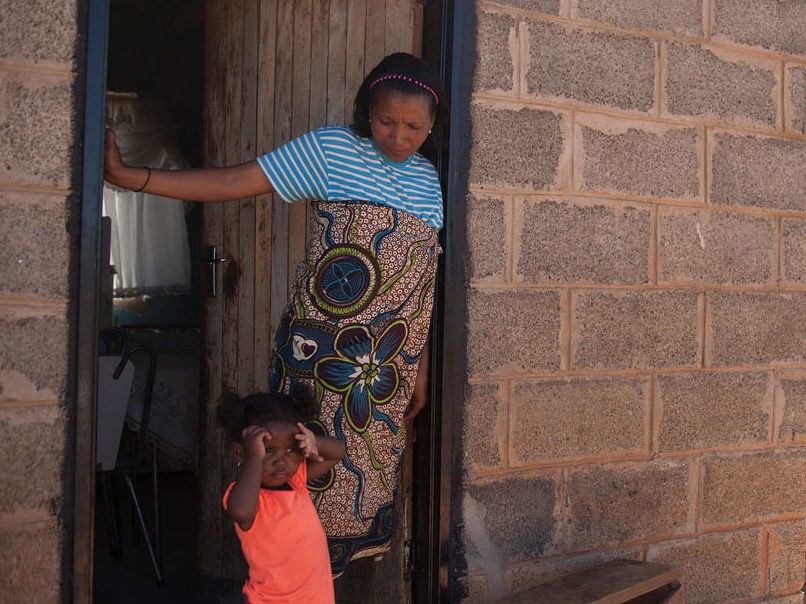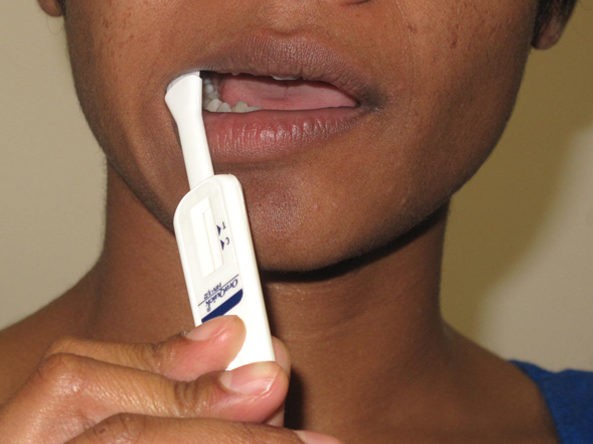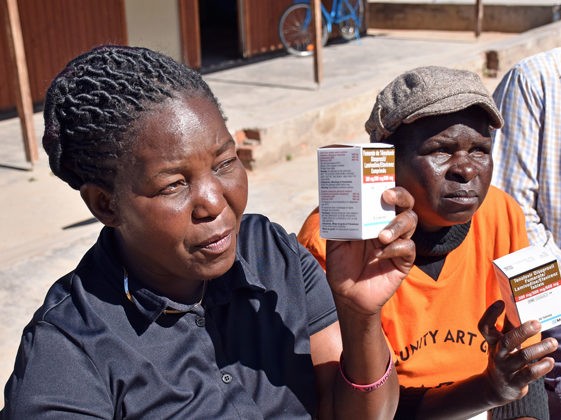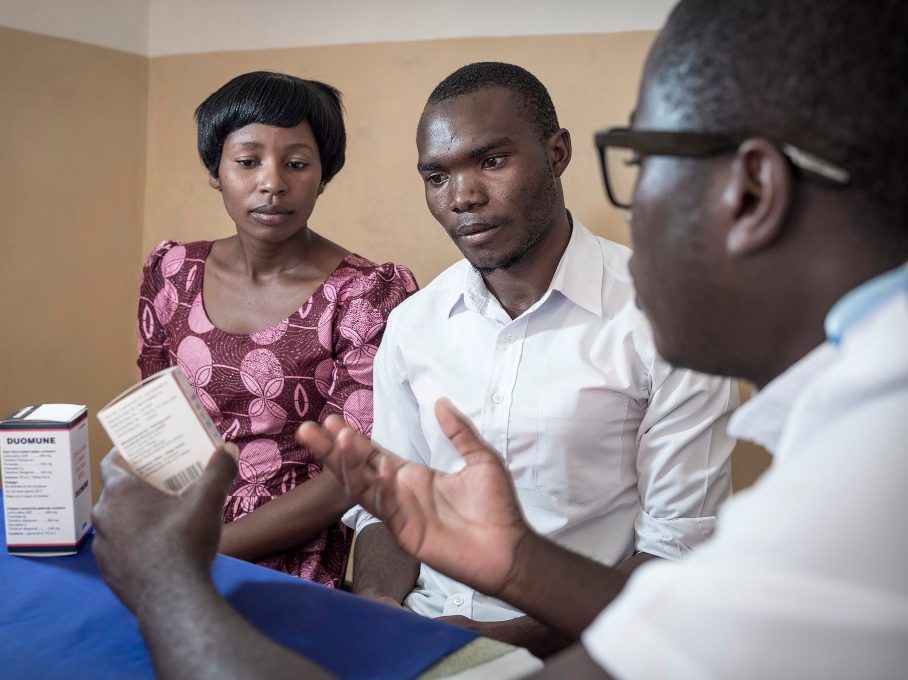Article and Study Summary
Same-day HIV testing with initiation of antiretroviral therapy versus standard care for persons living with HIV: A randomized unblinded trial.
Published in:
PLoS Med 14(7): e1002357.
https://doi.org/10.1371/journal.pmed.1002357
Authors:
Koenig SP, Dorvil N, Dévieux JG, Hedt-Gauthier BL, Riviere C, Faustin M, et al.
Summary:
This article reports on the results of an unblinded, randomized controlled trial conducted in a single clinic in urban Haiti, which compared retention in care with viral suppression after same-day HIV testing and antiretroviral therapy (ART) initiation to standard ARTinitiation procedures. Adults newly diagnosed with HIV, who were ready to start treatment, were randomized to either initiate ART on the day of diagnosis, or to the standard of care, which required two weekly visits prior to ART initiation 21 days after diagnosis. The study found that same-day ART initiation increased retention in care and viral suppression after 12 months, compared to standard ART initiation. Same-day ART initiation was also associated with a decrease in overall mortality at 12 months. These findings demonstrate that same-day ART initiation is beneficial and can be safely implemented in resource-limited settings. This supports the recently-released WHO guidelines that recommend same-day ART be offered to all individuals with a confirmed HIV diagnosis who are ready to start treatment.
Download full synopsis here or read below.
Discussion Questions:
- How could the results presented in this article inform strategies in the populations that you work with?
- What programmatic challenges do you foresee? Do you have any best practices to share?
Please share your thoughts and experiences with us in the comments section below.
Full Synopsis:
Study Summary
This unblinded, randomized controlled trial was conducted to evaluate whether same-day HIV testing and antiretroviral therapy (ART) initiation improved retention and viral suppression at 12 months, compared to standard ART initiation.
Study Setting
- HIV clinic in Port-au-Prince, Haiti.
Methods
- Participants testing positive for HIV between August 2013 and October 2015 were randomized to either same-day ART initiation or standard ART initiation with tenofovir/ lamivudine/efavirenz.
- Eligibility criteria were: aged 18 years or older, WHO Stage 1 or 2 disease, CD4 count <500 cells per cubic millimeter, and demonstrated preparedness on an ART readiness survey.
- Exclusion criteria included: already aware of HIV status, received ART previously, pregnant or breastfeeding, lived outside the Port-au-Prince area, and planned to transfer care.
- All participants were referred for a same-day physician evaluation, CD4 count, WHOstaging, and chest radiograph on the day of diagnosis.
- The standard ART initiation group followed national guidelines, with participants returning on Days 7, 10 and 14 for baseline laboratory and tuberculin skin tests, clinical evaluation, and adherence counseling, before initiating ART on Day 21. They then returned for follow-up visits during Weeks 5 and 7.
- The same-day ART initiation group had baseline laboratory tests collected and a 30-minute counseling session before initiating ART on the day of enrollment. They returned on Days 3, 10, 17, 24 and during Week 7 for laboratory test results, clinical evaluation, and adherence counseling.
- After the Week 7 visit, both groups were scheduled for monthly visits and received the same package of services.
- The primary endpoint was retention in care with viral load <50 copies per milliliter at 12 months.
- Secondary outcomes included: all-cause mortality, ART initiation, and retention in care with viral load <1,000 copies per milliliter at 12 months.
- Retention was defined as attending the 12-month visit (1 clinic visit between month 12 and 15), and lost to follow-up (LTFU) was defined as failure to attend the 12-month visit.
Study Population
- Of the 762 participants enrolled in the study, 356 in the standard ART group and 347 in the same-day ART group were included in the analysis.
- Median age was 37 years (interquartile range [IQR]: 30–45); 49% were women; and median CD4 count was 248 cells per cubic millimeter (IQR: 148–345).
Outcomes
-
- Retention in care at 12 months with VL <50 copies per milliliter was achieved by 53% of participants in the same-day ART group, compared to 44% in the standard ART group (adjusted risk ratio [RR] 1.24, 95% confidence interval [CI]: 1.06–1.41).
- Retention in care at 12 months with VL <1000 copies per milliliter was achieved by 61% in the same-day ART group, compared to 52% in the standard ART group (adjusted RR 1.20, 95% CI: 1.05–1.33).
- The same-day ART group was more likely to be retained in care at 12 months, regardless of viral suppression, than the standard ART group (80% vs. 72%, p = 0.014).
- Six percent (n = 20) of participants died in the standard ART group, compared to 3% in the same-day ART group (adjusted RR 0.43, 95% CI: 0.19–0.94).
- Forty percent (n = 8) of deaths in the standard ART group occurred in participants who were LTFU prior to ART initiation.
- In the same-day ART group, 99% (n = 344) of participants started ART on the day of HIV testing, and the remaining three started within the subsequent week.
- During the Day 3 visit, 4% (n = 13) in the same-day ART group were switched from tenofovir to zidovudine or abacavir because their baseline creatinine clearance was <50 milliliters per minute.
- In the standard ART group, 79% (n = 281) of participants initiated ART by Day 28 and 8%
(n = 27) never started ART during the study period.
Critical Analysis
This randomized controlled trial found that same-day HIV testing and initiation of ARTincreased retention in care with viral suppression at 12 months and was associated with reduced mortality compared to standard ART initiation. This study also demonstrated that same-day ART initiation is feasible and can be done safely in resource-limited settings.
The following points should be considered when interpreting the study findings:
- Participants, site personnel, and study statisticians were not masked to group assignment.
- The study used a modified intention-to-treat approach in their analysis, which excluded 59 (8%) participants who transferred to another facility during the study period.
- Participants in this study had WHO Stage 1 or 2 disease and a CD4 count <500 cells per cubic millimeter. Findings may not be generalizable to individuals with more advanced disease or those presenting with higher CD4 counts.
- The vast majority (99%) of the patients screened demonstrated a willingness to start life-long ART.
- The study protocol included participant subsidies for transport and tracing participants who missed a visit through outreach phone calls and home visits, which may limit generalizability in settings without these resources.
- The study protocol included a chest radiograph for every participant on enrollment to rule out active tuberculosis (TB). However, ART is typically initiated after TB screening based on symptoms alone; therefore, it is possible that more active TB cases would be missed at the time of ART initiation in other clinical settings.
- The study was conducted at a single clinic in an urban setting in Haiti, which may further limit generalizability.
Implications
This study demonstrates that same-day HIV testing and ART initiation can increase retention in care and viral suppression at 12 months, and is associated with a decrease in mortality. These findings support the recent WHO guidelines on rapid initiation of antiretroviral therapy, which include the recommendation that same-day ART initiation be offered to all individuals with a confirmed HIV diagnosis who are ready to start. (1) The guidelines highlight growing evidence of substantial loss to care and high mortality among individuals diagnosed with HIV prior to initiating ART, which contributes significantly to attrition in the care cascade. This study also demonstrates that same-day ART initiation in resource-limited settings is feasible, and that ART can be initiated safely, with frequent and rapid follow-up, before baseline laboratory results are available. Despite improved retention with same-day ART initiation, overall retention at 12 months was still suboptimal in this study, suggesting the need for additional strategies to improve long-term retention in care.
References
- World Health Organization. Guidelines for managing advanced HIV disease and rapid initiation of antiretroviral therapy. Geneva, Switzerland; 2017. http://www.who.int/hiv/pub/guidelines/advanced-HIV-disease/en/








